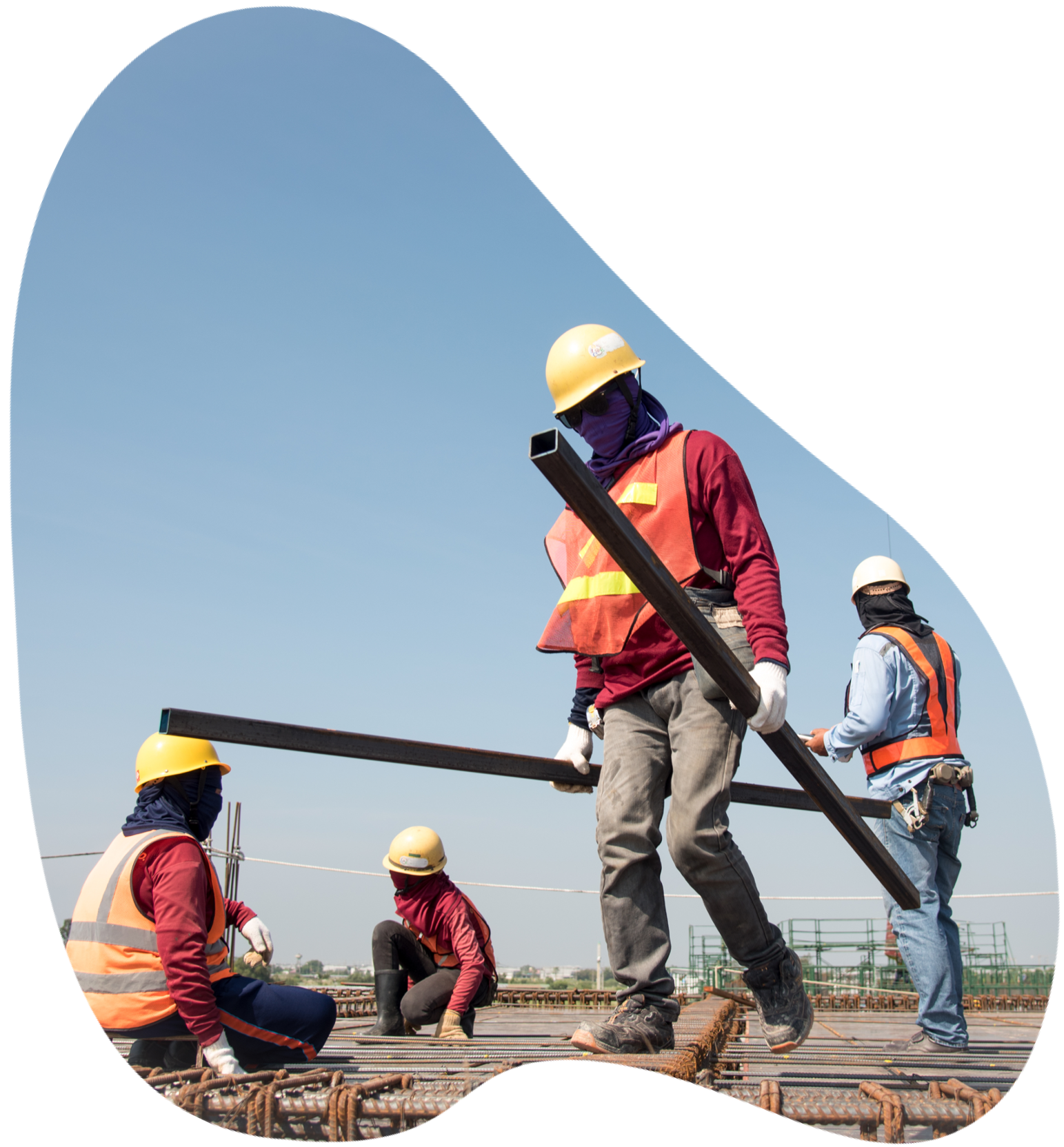Ulula in Construction
Support at-risk workers and disseminate information and resources
Construction
An estimated 60,000 fatalities related to the construction sector occur each year; construction continues to be the leading hazardous sector across all major industries. In Qatar alone, more than 6,500 migrants have lost their lives since the World Cup was awarded, in 2010. In 2017, 7% of the global workforce was employed in construction (BWI). In 2020, construction will account for a predicted 13% of global GDP. Much of this growing workforce is employed through precarious subcontracts.
By relying on subcontracting, the industry increases labor risks, creating sub-categories of workers that often receive less training on health and safety and lower wages and social protections. According to a survey conducted by the Business & Human Rights Resource Centre in 2016, up to 80% of the workforce in well-known Middle Eastern construction companies was employed by subcontractors.
Other exploitative practices that foreign temporary workers are exposed to include the kafala system (employment sponsorship) and recruitment fees, which often lead to situations of debt bondage, passport retention and constraints to freedom of movement.
How Ulula Supports Organizations in Construction
Ulula supports at-risk workers through remote risk assessments, targeted notifications that disseminate information and resources and proactive grievance management that facilitates anonymous two-way communication in the workers’ preferred language, all through their mobile phones.
An estimated 60,000 fatalities related to the construction sector occur each year; construction continues to be the leading hazardous sector across all major industries.
Identifying and Mitigating Human Rights Abuses
Migrant construction workers often face exploitative recruitment practices that make them beholden to employers and thus afraid to submit grievances. The construction of the FIFA stadiums in the Gulf exposed the true labor conditions of migrant workers and, consequently, increased scrutiny of the sector’s adverse human rights practices.
Through Ulula, organizations avoid human rights transgressions by establishing transparent communication channels, such as an anonymous two-way grievance mechanism accessible by phone in any language. There, migrants can report issues such as recruitment fees, mandatory overtime and passport confiscation, thereby safely accessing remediation.
Anonymous worker surveys enhance on the ground assessments, allowing businesses to better adhere to international human rights standards
The Ulula solution can also disseminate training materials and information on worker rights to staff, so they can better identify violations

Migrant construction workers often face exploitative recruitment practices that make them beholden to employers and thus afraid to submit grievances.

Training and Educating Migrant Workers
Having limited resources and connections and only temporary work and residency – often without formal methods of recourse and representation – migrant workers become vulnerable to abuses and wage theft.
With Ulula, companies can support digital worker training in their preferred language, keeping workers informed of their rights and giving them access to policies, procedures and means of safe reporting.
Organizations can easily and quickly deliver and modify content in any format, including video, audio, visual and text
Through worker surveys and a grievance channel, Ulula also effectively engages with migrant workers along their journey, from place of origin to destination, offering access to practical resources, and advice tailored to the unique needs at every step
Training and Educating Migrant Workers
Having limited resources and connections and only temporary work and residency – often without formal methods of recourse and representation – migrant workers become vulnerable to abuses and wage theft.
With Ulula, companies can support digital worker training in their preferred language, keeping workers informed of their rights and giving them access to policies, procedures and means of safe reporting.
Organizations can easily and quickly deliver and modify content in any format, including video, audio, visual and text
Through worker surveys and a grievance channel, Ulula also effectively engages with migrant workers along their journey, from place of origin to destination, offering access to practical resources, and advice tailored to the unique needs at every step

Supporting Health and Safety Through Engagement
About 30% of all occupational fatal injuries occur in construction and the primary causes of fatalities include falls, electrocution, and crush injuries. Ulula’s grievance mechanism acts as a safety net. Workers can report insufficient or damaged protective equipment, such as helmets and harnesses.

Continuous insights
Ongoing worker surveys can assess safety precautions such as guard rails.

Improve health and safety
By implementing Ulula at the site-level, an organization can also foster a culture of health and safety, encouraging workers to be more careful.
Through Ulula’s multilingual surveys, organizations and buyers can conduct remote assessments, gathering information directly from workers to better understand labor risks on the ground.
Increasing Visibility Across Subcontracting
The construction industry’s layers of subcontracting, especially in the Gulf, obstruct visibility into risks such as labor recruitment, harassment and poor working and dormitory conditions, thus further marginalizing and exploiting already vulnerable workers. A situation compounded by language barriers, many migrant workers are left without support and unable to protect their human rights.
Through Ulula’s multilingual surveys, organizations and buyers can conduct remote assessments, gathering information directly from workers to better understand labor risks on the ground.
On-demand data and analytics can be used to inform and design remediation plans, which can then be implemented and measured using the Ulula solution
Construction companies can use the data to demonstrate compliance and mitigate risks across their own supply chain

The Impact of COVID-19 on Workers in Construction
Even before the pandemic, hundreds of migrant construction workers succumbed from heat stress each year in Qatar, without investigation. The pandemic has further worsened health hazards for vulnerable workers. Equidem reports that migrant workers in Gulf nations have been relegated to crowded camps and quarantine facilities.
With Ulula, you can:
Gather data directly from workers and deliver safety and rights information to worker’s mobile phones in their selected language.
Enable workers to access information about health care services, submit concerns regarding income loss and better understand their rights and options during times of crisis.
Ulula Across Sectors
See how Ulula solutions address challenges across other sectors.
Engage workers at all levels of the supply chain
Get in touch to learn how Ulula solutions can support your organization’s stakeholder engagement goals in the construction sector.







